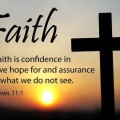By: Rev. J. Loren Russell
1 Kings 18:17-19
Then it happened, when Ahab saw Elijah, that Ahab said to him, “Is that you, O troubler of Israel?”And he answered, “I have not troubled Israel, but you and your father’s house have, in that you have forsaken the commandments of the Lord and have followed the Baals. Now therefore, send and gather all Israel to me on Mount Carmel, the four hundred and fifty prophets of Baal, and the four hundred prophets of Asherah, who eat at Jezebel’s table.”
It can be argued that the prophetic voice of the preacher has been silenced and replaced with a voice of apathy. A prophetic voice is one that forewarns and foretells, a voice that communicates vision and foresight. The prophetic voice is often confrontational and provocative.
A prophetic voice goes against the status quo and challenges us to go beyond the mediocre and the mundane to reach the highest heights and gain the greatest victories. Marvin A. McMickle wrote in Where Have All the Prophets Gone? Reclaiming Prophetic Preaching in America, where have the voices gone that overlook and ignore so many pressing issues in our society that now go unaddressed and unexamined by many who preach the gospel of Jesus Christ?
The voices we count on to provoke and challenge us to be our best selves have been silenced, if not eradicated.
A meeting was slated to take place between King Ahab and the prophet Elijah. It would be both dramatic and spectacular. Ahab was as bad a king as ever the world experienced, and Elijah as good a prophet as the world could imagine. This dramatic meeting was not arranged by either Elijah or Ahab but ordained by God. It would be a showdown between all that was good and the power of evil. In this exchange, Elijah had an unfair advantage.
Obadiah, a servant of Ahab but a worshiper of God, was sent by Ahab and told to “Go into the land to all the springs of water and to all the brooks; perhaps we may find grass to keep the horses and mules alive, so that we will not have to kill any livestock” (v. 5). While in route, Obadiah met Elijah, recognized him as the prophet of God, and honored him. Elijah immediately directed him to go and tell his master where he could be found.
Obadiah feared doing that because he thought the Lord would direct Elijah to go somewhere else before Ahab arrived, and he would be killed. Prophetic people of God have decided that dying is gain (Philippians 1:21). That’s another reason they have an unfair advantage. Obadiah was a believer, but he did not possess a prophetic voice. When Elijah met Ahab, he told him it wasn’t him that troubled Israel, but it was he and his father’s house who were the troublers. It was he who had forsaken the commandments of God and followed false gods. Then he challenges the king to assemble all 450 prophets of Baal and the 400 prophets of Asherah to gather at Mt. Carmel. He boldly proclaims that he alone can stand before the prophets of Baal and defeat them all.
A prophetic voice of the prophet knows that they have an unfair advantage over the enemy no matter the number that comes against them! They know that they personify the recovery of the prophetic ministry that has been lost. And, they are willing, as Marvin A. McMickle says, to find the courage and the boldness to stand up to and speak out against the people and policies responsible for those issues in our society that go unaddressed and unexamined.”
Be Blessed!
Rev. J. Loren Russell is President/CEO of The JLR Company for Church Financial Strategy & Consulting; an associate minister at both Goodwill and The Greater Universal Baptist Churches in the Bronx; creator & host of “Matters of Faith – The Radio Show” Mondays 8:00 – 10:00 PM on Facebook LIVE and author of Matters of Faith: The Book (eBook available at www.smashwords.com/books/view/993177)















Follow Us